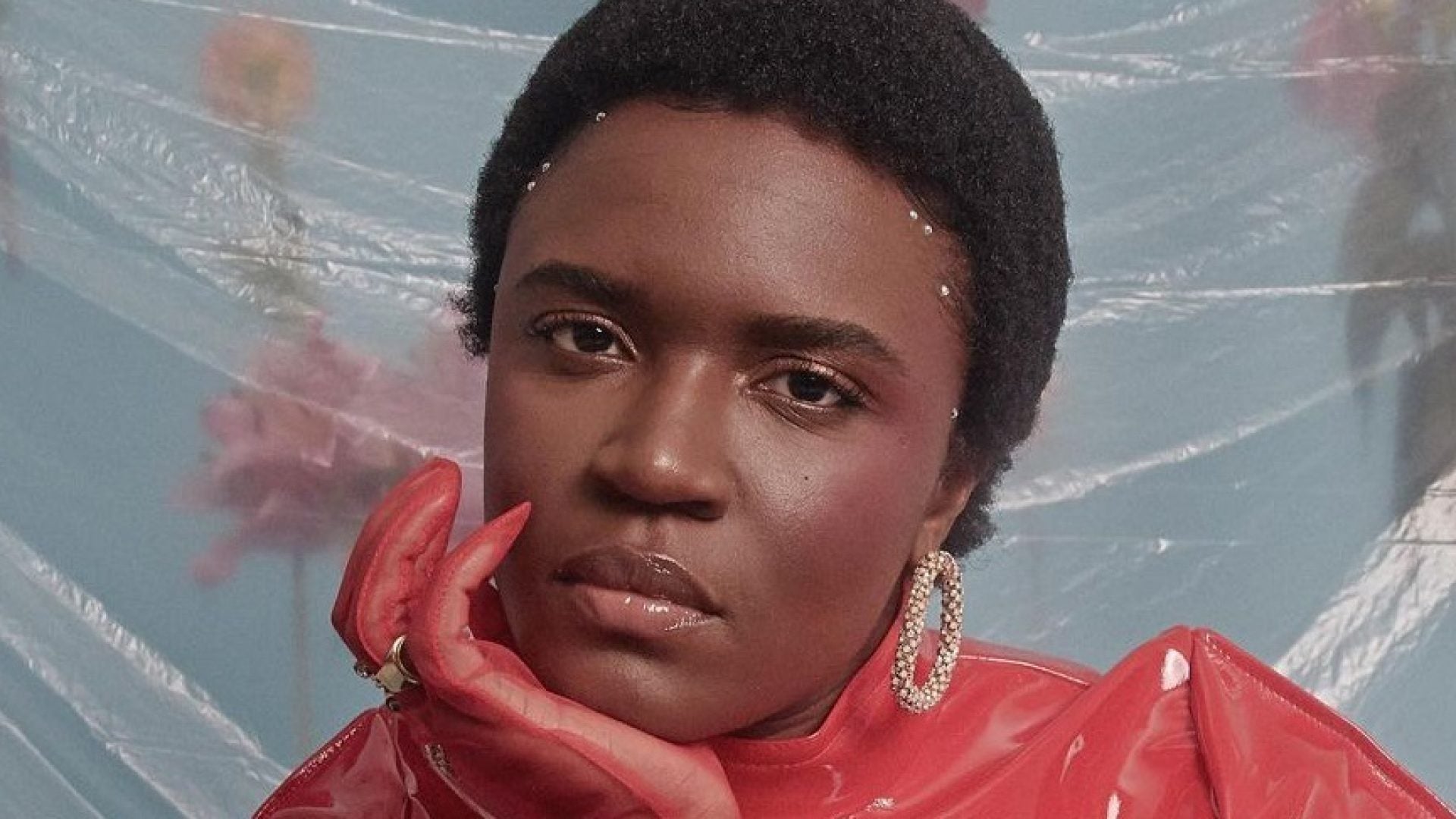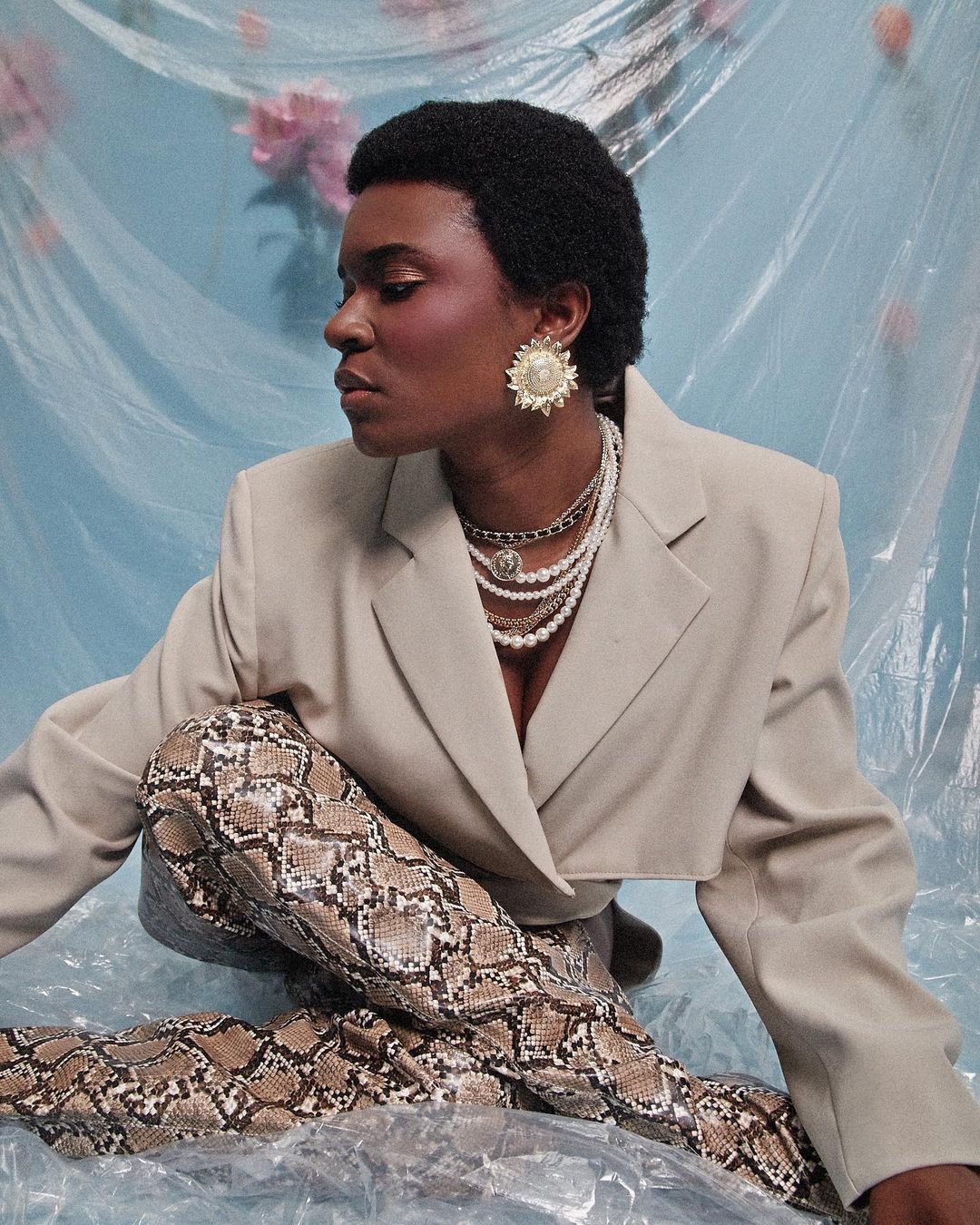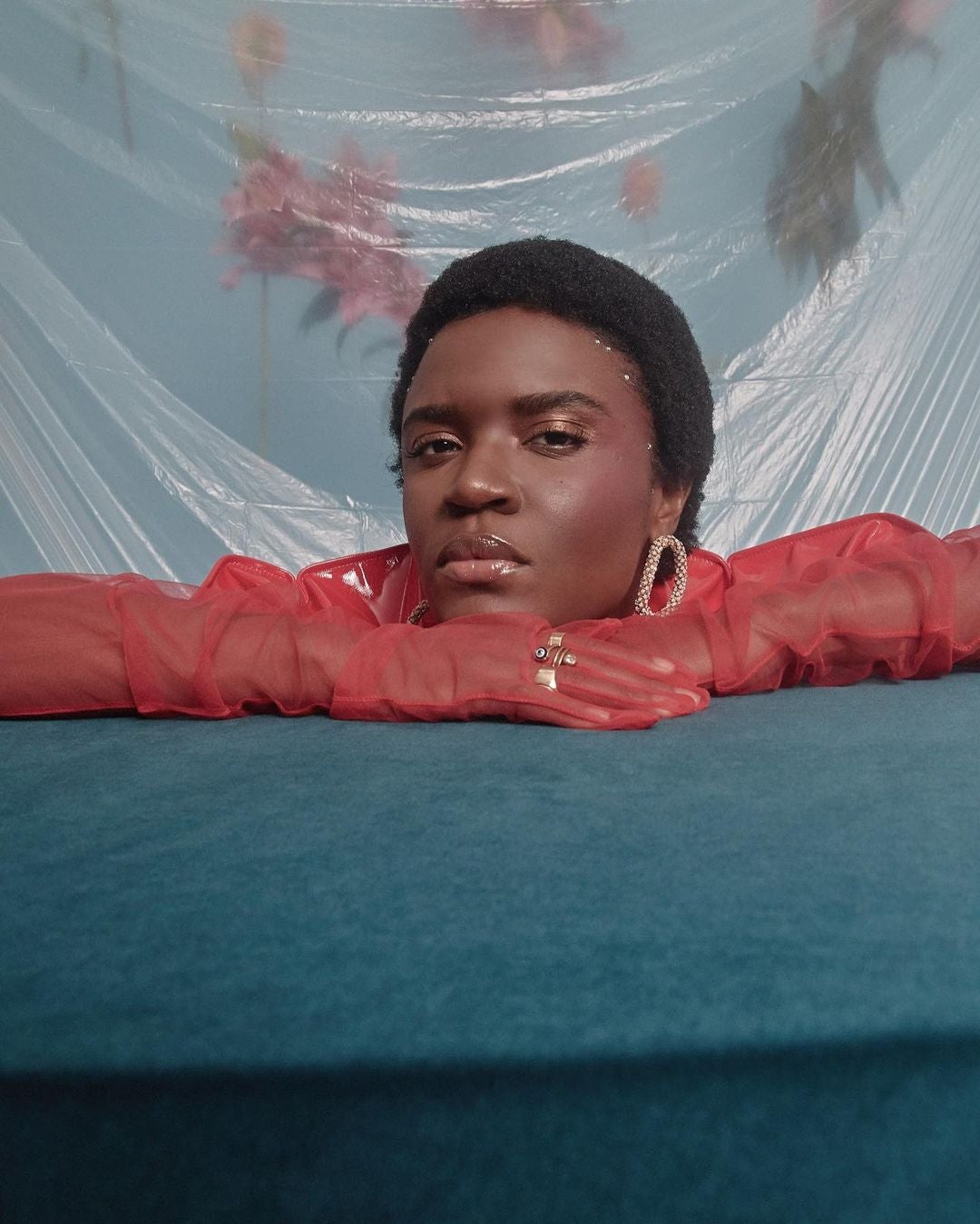 AMAARAE | Photographer: Philipp Raheem By Antoinette Isama ·November 30, 2020November 30, 2020
AMAARAE | Photographer: Philipp Raheem By Antoinette Isama ·November 30, 2020November 30, 2020
Amaarae is a sonic force that is truly one to watch. The Ghanaian-American singer has sparked refreshing cross-cultural conversations with her recently-released debut album, The Angel You Don’t Know.
Like so many of us, Amaarae has spent the majority of the pandemic in her home country. Forced to adapt to the restrictions innovatively, she tapped into creative thinking and problem solving to execute the inner workings of her debut, like music video concepts and the process of mixing and mastering, remotely. Despite these challenges, it came without a hitch.
You can hear the hard work in The Angel You Don’t Know with her whisper-toned vocals and kitschy lyrics at the foundation. As an artist who taps into her diverse musical influences that came from her upbringing between Atlanta, New Jersey and Ghana, Amaarae shows how being intentional with genre-bending and experimenting can carve a much-needed lane in the ever-burgeoning African pop scene.
Calling this project her “form of gospel,” the songstress made sure to reach across with the features you’ll hear on the album. Collaborating with the likes of Cruel Santino, Kojey Radical, Ckay, Princess Adjua, Moliy, and more, Amaarae blessed our ears with apt storytelling and timeless sounds that’s worth replaying.
In our quick chat with Amaarae, we touch on her intentions with this project and the African pop space, as well as her latest music video, “Jumping Ship,” below.
 AMAARAE | Photographer: Philipp Raheem (@philippraheem)
AMAARAE | Photographer: Philipp Raheem (@philippraheem)
I didn’t realize that this was your first full-length body of work until its release due to it sounding very seasoned. How did you approach your creative process to essentially make this statement of ‘This is who I am’?
AMAARAE: I took my time, for the most part. I allowed myself to discover the different parts of me and all the different parts that I wanted to develop and share with people. It was really important for me to have as much diversity as possible on the record. It goes from punk rock to pop, from afrobeats to dancehall, to trap and everything in-between. For me, it was more so about putting in the time and the effort, and finding the talent within myself and within others to execute something that I could be proud of and that people could also enjoy.
What were some challenges, if any, that you came across while creating your album?
AMAARAE: I think anytime you want to do something different, there are definitely challenges. I don’t know if it’s 2020 in general, but I think this year people have been more open to new types of creativity and new adventures, especially when it comes to art.
The biggest challenge I’ve faced was within myself and not being afraid to put the record out there and also not being afraid to take risks with certain records that I put on the album. For me, the biggest challenge was fighting me, as opposed to me really being concerned with what the world was going to say or had to say about it.
Talk me through a few of your collaborations on the project.
AMAARAE: With a lot of the features, these were artists that I was generally fans of. Someone like Kojey Radical—he’s family and we’ve always worked together on stuff; I’ve been to a few of his writing camps. “Jumping Ship” was his record that he sat on for a while and wasn’t really into it because he didn’t see what it could be for him. So he just passed me that record and asked me to do what I can.
With Cruel Santino and I, I think we’ve always had great chemistry on records. Every time we worked together it’s always something really special, so it was a no-brainer for me to put him on a record like this. When I sent it to him he sent over two different verses because of how excited he was about the record.
The collaborations were effortless. I didn’t have people on this record that I didn’t genuinely like or didn’t have a genuine relationship with—and I think that shines through on the records as well.
Speaking of Kojey Radical and Cruel Santino, what inspired the concept behind the “Jumping Ship” music video?
AMAARAE: The video is directed by Remi Laudat and produced by Academy Films. I wrote a treatment where it was myself, Kojey and Santino chasing this goddess-type figure through this maze. The song is about being unable to tame your desire, so that’s what we tried to infuse in the video. We tried to keep it still us and still authentic, so every scene each artist is in is very specific to them, to their brand, and their energy. It was a fun time—we had a good time shooting it.
What I appreciate about your music and that of those coming up with you is how you all are challenging what people understand African pop music to be right now—it’s not one-dimensional. How would you further describe what you’re trying to contribute to that space?
AMAARAE: What I bring into the space is a fearlessness—but also a really well-rounded perspective in terms of not what African music is at the moment, but what it could be and all the different avenues that artists can take their art while remaining authentic. I’m kind of an outlier, but I’m still able to fuse and maintain my originality and in essence, my culture.
 AMAARAE | Photographer: Philipp Raheem (@philippraheem) TOPICS: african music African pop AMAARAE Essence Africa Ghana
AMAARAE | Photographer: Philipp Raheem (@philippraheem) TOPICS: african music African pop AMAARAE Essence Africa Ghana
The post Amaarae Makes a Bold and Fierce Debut with ‘The Angel You Don’t Know’ appeared first on Essence.
